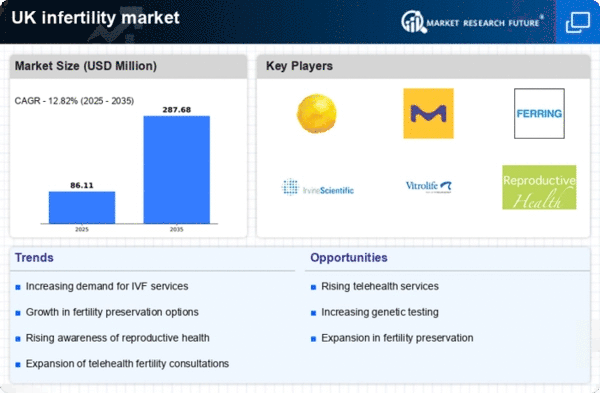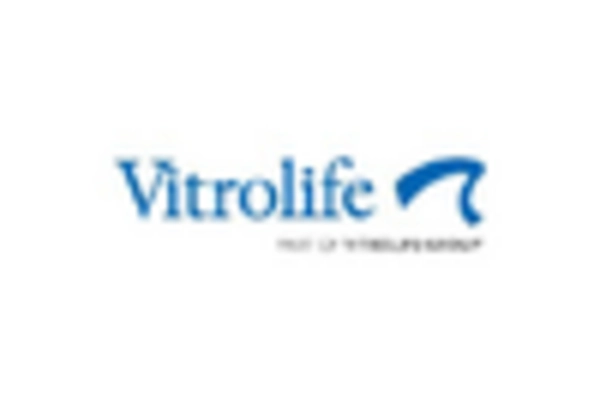Rising Infertility Rates
The infertility market in the UK is experiencing growth due to rising infertility rates among couples. Recent data indicates that approximately 1 in 7 couples face difficulties conceiving, which translates to around 3.5 million individuals affected. This increase in infertility cases is attributed to various factors, including lifestyle changes, delayed parenthood, and health issues. As a result, there is a growing demand for fertility treatments and services, driving the market forward. The infertility market is likely to expand as more individuals seek assistance, leading to increased investments in reproductive technologies and healthcare services.
Increased Awareness and Education
Awareness regarding infertility issues is on the rise in the UK, contributing positively to the infertility market. Educational campaigns and resources provided by healthcare professionals have empowered individuals to understand their reproductive health better. This heightened awareness has led to more couples seeking fertility evaluations and treatments. According to recent surveys, around 60% of individuals are now more informed about fertility options compared to previous years. Consequently, the infertility market is likely to benefit from this trend, as more people are willing to explore available treatments and solutions.
Government Initiatives and Support
Government initiatives aimed at addressing infertility issues are playing a crucial role in shaping the infertility market. The UK government has implemented various policies to support fertility treatments, including funding for IVF cycles through the National Health Service (NHS). Recent reports suggest that around 50% of Clinical Commissioning Groups (CCGs) now offer at least one funded IVF cycle, which has made treatments more accessible to a broader population. This support is likely to enhance the growth of the infertility market, as financial barriers are reduced, encouraging more couples to seek help.
Advancements in Reproductive Technologies
Technological innovations in reproductive health are significantly impacting the infertility market. The introduction of advanced techniques such as in vitro fertilization (IVF), intracytoplasmic sperm injection (ICSI), and preimplantation genetic testing (PGT) has revolutionized fertility treatments. In the UK, the IVF success rate has improved to approximately 30% per cycle, encouraging more couples to pursue these options. As these technologies continue to evolve, the infertility market is expected to grow, with increased accessibility and affordability of treatments, thereby attracting a larger patient base.
Changing Demographics and Family Structures
The evolving demographics and family structures in the UK are influencing the infertility market. With an increasing number of individuals choosing to start families later in life, the age-related decline in fertility is becoming more pronounced. Data indicates that women aged 35 and above are experiencing higher rates of infertility, prompting a surge in demand for fertility services. This demographic shift is likely to drive the infertility market as healthcare providers adapt to meet the needs of older parents, offering tailored solutions and support.
















